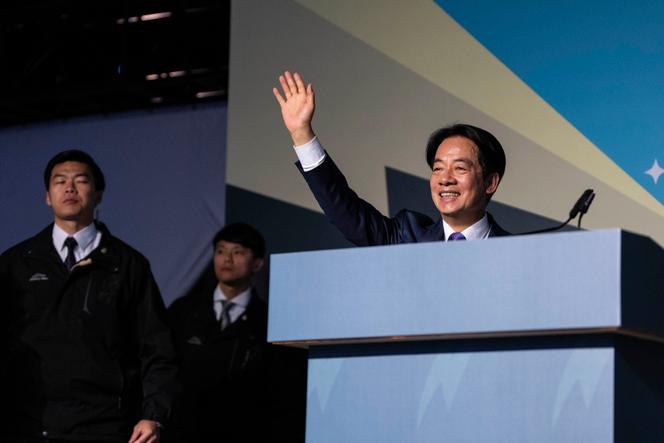


They had already prepared the blow, but Beijing chose the right moment to strike: Two days after Lai Ching-te, a staunch defender of Taiwanese sovereignty, won the presidential election, the small island of Nauru announced that it was ending diplomatic relations with Taipei and recognizing Beijing. While the importance of the island of 12,500 inhabitants is limited, Taipei lost the support of one of the last states to recognize it. It's a diplomatic coup for China, who were demonstrating that they can punish Taiwan when they don't choose the side of rapprochement. So far, however, this announcement is the most significant point of a moderate Chinese reaction, designed to preserve the détente in relations with the United States since the meeting of Xi Jinping with Joe Biden in San Francisco, in November 2023.
In the aftermath of the Taiwanese election, Beijing brushed off the result as null and void, since Beijing regards Taiwan as a rebel province and does not recognize Taiwanese institutions. "The results of the Taiwan regional leadership election will not change the basic fact that there is only one China in the world and Taiwan is part of China," said Foreign Minister Wang Yi on Sunday, January 14. "Taiwan has never been a country. It wasn't in the past, and it certainly won't be in the future," continued the head of Chinese diplomacy, adding that any effort in the direction of independence would be "harshly punished."
The only consolation for China was the relatively low score of Lai, who won the single-round presidential election with 40% of the vote, while the Kuomintang (KMT), a party more favorable to closer ties with China, won a relative majority in Parliament. With 52 seats for the KMT against 51 for the Democratic Progressive Party (DPP), the eight seats won by the Taiwan People's Party (TPP) give this third force, more discreet on the question of relations with China, a position of arbiter. This distribution was emphasized by Beijing in the statement issued by the Taiwan Affairs Office just after the results were announced: "The results of the two elections (...) have shown that the DPP does not represent the mainstream of public opinion on the island."
Mathieu Duchâtel, director of International Studies at the Institut Montaigne, said there are a number of factors behind the Chinese leadership's caution. "They are waiting for two things: an understanding of the balance of power in Parliament and a clarification of US policy toward Taiwan after the [November presidential] election. For now, their reaction is to delegitimize Lai by pointing out that the DPP does not represent an absolute majority." Beijing could benefit from a "blue" majority (KMT color) in Parliament, which could, for example, block the acquisition of American military equipment, as was the case under the DPP president between 2000 and 2008.
You have 45% of this article left to read. The rest is for subscribers only.
